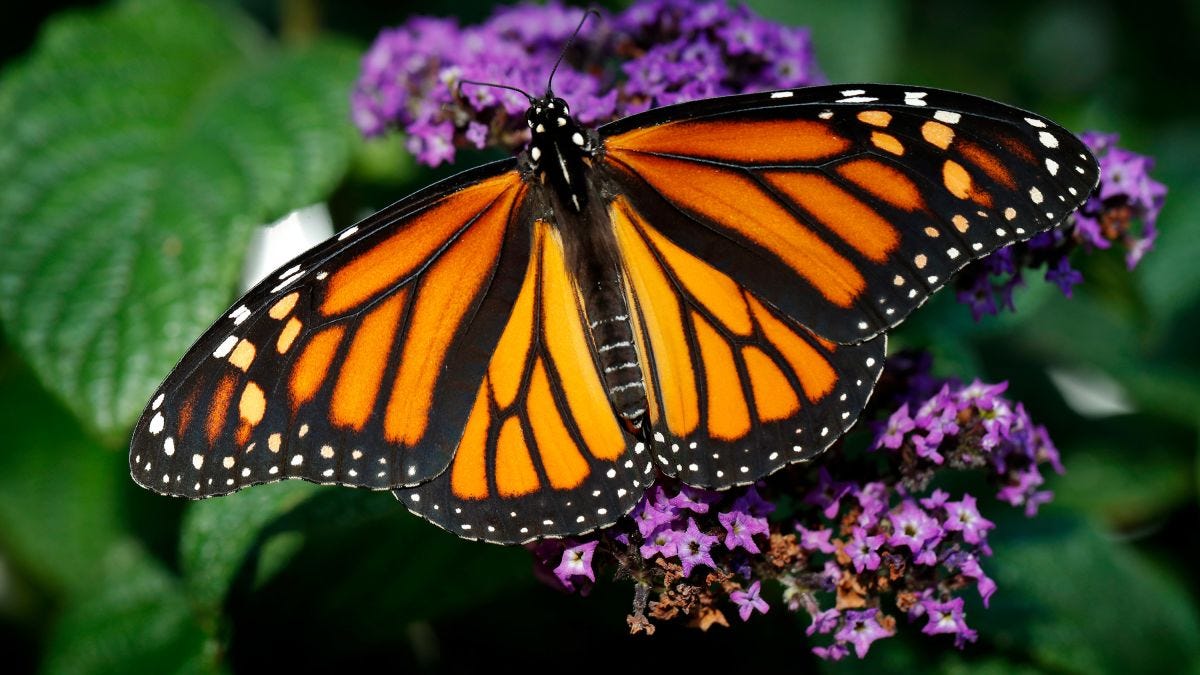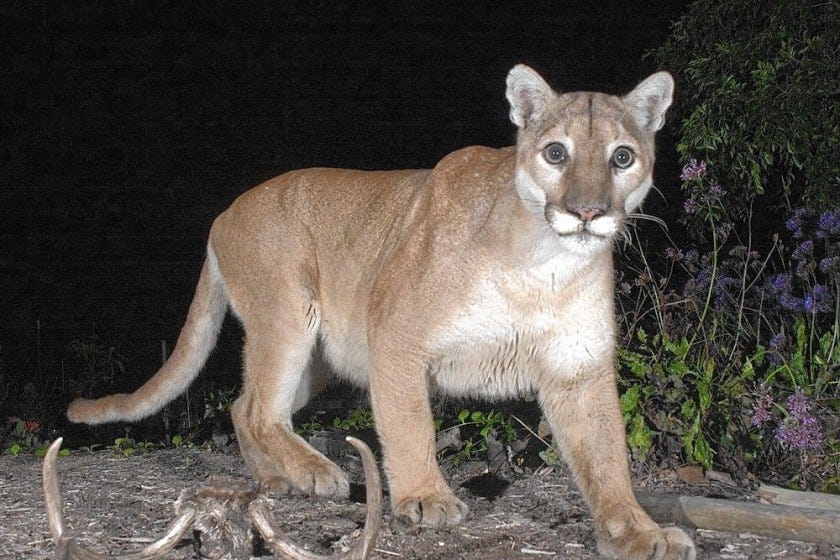Human Population Growth Devours Wildlife Habitat and the Environment, But You’d Never Know It From Reading The News
Population Denial Surrounds Us All Day, Everyday
Yet another news story caught my eye recently which highlights that scientists and the media continue to obscure the facts from the public about why wildlife — and the environment in general — are being diminished and devoured across the planet.
This most recent story was in Phys.org, a publication that reports on scientific stories for the general public. The article was titled, “Findings refute idea of monarchs' migration mortality as major cause of population decline”. The news article was based on a scientific study in the journal Frontiers which discussed the reason why the number of monarch butterflies in the U.S. has declined so dramatically.

The scientific article supported the theory that “habitat loss” was the cause of monarch decline, and the Phys.org report concluded by saying, “These findings support the conclusion reached by a team of experts that sustaining the monarch migration will require the restoration of over a billion milkweed stems in the Upper Midwest in the coming years.”
However, nowhere in the report does it discuss that human population growth and its dramatic encroachment into monarch habitat — especially due to farming and housing/commercial development — is the root cause of the problem. As such, a reader would come away with the vague idea that “habitat loss” is the culprit, a ‘thing’ that has no agency or agent behind it.
A second and similar story that routinely makes news is about mountain lions (cougar) in Southern California. These stories are a little better and identify some of the causes for the loss of habitat, but still avoid any reference to “human population growth”.
The Southern California species of cougar has recently been proposed for listing under the federal Endangered Species Act due to the decline in its population, a story that is routinely covered by the Los Angeles Times.

In the most recent LA Times story (photo credit above: LA Times), the report lists a plethora of culprits that endanger cougars including “sprawl”, “freeways”, “development”, “highway construction”, “housing development”, and “commercial and residential development”. Finally, the article concludes by saying, “An even greater concern, scientists say, is loss of landscape connectivity between ranges and large blocks of open space on private land”.
Nowhere in this article, or almost any of the stories around the issue, is mentioned the actual driver of the culprits, which is human population growth in Southern California. Further, scientists set the stage for this human population denial as they speak about “loss of landscape connectivity”, instead of also talking about what causes that loss.
A final story — among many in the media on a daily basis — gets closer to being accurate, but doesn’t quite name the problem. This story is in The Economist, and is titled, “The world is losing its big old trees”. The story discusses the demise of large trees across the planet and their importance in protecting against climate change.

The article states, “A recent study, published in Science, finds that the world has lost over one-third of its primary forests (defined by the researchers as those undisturbed by humans for more than 140 years) between 1990 and 2015 to land-use change (eg, to create farms) and tree harvesting for wood.”
Throughout the article, the scientists are quoted as saying the forests have been lost due to “land-use change”, “deforestation”, “forest disturbance”, “making room for cropland and pasture”, and “forest harvesting”.
At one point in the news article, the authors edge close to the problem when they state directly, “humans have been killing off the planet’s old trees…”, and I say, finally(!) there’s the culprit, “humans”. That said, nowhere in the article is the dramatic growth in global human population and its encroachment into forests directly mentioned.
There’s an old saying, “You can’t fix what you refuse to see”, and a host of outcomes — all bad — usually transpire from refusing to name or see a problem correctly. What is sometimes called “population denial” or “growth bias” runs rampant in the media and in the scientific community behind it.
Until we start naming and talking about the problem of human population growth, it will continue to diminish and devour wildlife habitat and the environment across the planet.




Wow - great article. I "get it".